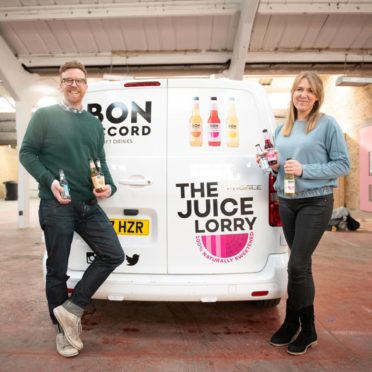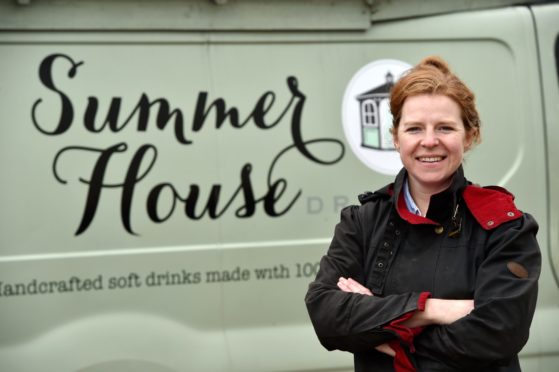When we look back on the pandemic in years to come, some things will stick in our collective memory.
The way we all sat in our gardens with a cold beer during that sunny 2020 spring, the way we all enjoyed a glass of wine while chatting with friends on Zoom, the way we all got a pre-mixed cocktail delivered from our local bar – or did we?
While it’s tempting to think that everyone turned to the bottle to relieve the stress of lockdown, the figures tell a different story.
Poll found significant number cutting back on alcohol
A poll by Alcohol Focus Scotland and Alcohol Change UK found that, while 29% of Scots reported drinking more alcohol during the pandemic, the same proportion said they had cut down or stopped drinking altogether.
That trend for drinking less was noticed by Ruari Fairbairn, who founded online toolkit One Year No Beer (OYNB) with his friend Andy Ramage in 2015.
Their company runs 28, 90, and 365-day challenges to help its members take a break from alcohol.
More people than ever are choosing not to drink and long may this continue.”
Ruari Fairburn
Mr Fairburn said: “In the first lockdown, we witnessed a 30% increase in signups, signalling a clear demand for increased support.”
More people have continued to sign up to OYNB since lockdown eased.
“We have seen a huge rise in demand for our products and services over the course of the past 18 months and this is so encouraging,” added Mr Fairburn.
“We, as a business, have never been more relevant as society continues to change its relationship with alcohol.
“Covid has actually accelerated this trend and driven the percentage of heavy drinkers up and the percentage of those on the fence down.
“More people than ever are choosing not to drink and long may this continue.”
Mr Fairburn expects the trend towards lower alcohol consumption will persist and will boost the popularity of alternative drinks.
“Demand equals supply, and this is what makes the world go round,” he said.
“We are going to see so much happen in the alcohol-free and soft drinks space.
“People are going to start innovating with natural alcohol-free highs and there are already some companies pioneering – watch this space.”
Local producers optimistic as business builds
Soft drink producers in the north are optimistic as they recover from the loss of the hospitality industry for large portions of the pandemic.
Karen Knowles, who revived her family’s Bon Accord brand in 2016, said: “When lockdown hit, almost 80% of our customers had to close their doors and the impact was felt throughout the industry.”
Bon Accord developed the retail arm of its business and focused on its local customers, including Aldi, the Co-op, and Margiotta.
The company launched an online shop, which now accounts for almost 10% of its sales.
Ms Knowles said: “Due to the restrictions on serving alcohol in venues, people were exploring new soft drinks brands, which helped to bolster our sales.
“When the curfew was in place for on-trade, increased lunchtime dining occasions resulted in a rise in the volume of soft drinks consumed.
“One of our goals for this year was to regain the level of hospitality sales that we were achieving in 2019; we’re delighted that we’re actually exceeding those goals due to on-trade businesses broadening their soft drinks offering to meet increased consumer demand.”
When the curfew was in place for on-trade, increased lunchtime dining occasions resulted in a rise in the volume of soft drinks consumed.”
Karen Knowles
She added: “The rise in soft drinks popularity is already well under-way.
“One in five adults in the UK don’t drink alcohol and drinking in moderation presents the biggest current opportunity for the soft drinks market.
“The covid pandemic placed a focus on healthier lifestyle trends for consumers and highlighted an opportunity for independent brands such as Bon Accord to differentiate ourselves through our focus on innovation and ensuring our drinks are made with high-quality, plant-based natural ingredients.
“Moreover, ‘self-treating’ during lockdown increased and we all wanted nicer products to enjoy at home, hence the increase in our online sales – this trend continues to thrive.”
Claire Rennie, who launched Summerhouse Drinks from her family’s farm at Peathill in Aberdeenshire back in 2014, experienced a similar pattern.
“During the first lockdown, we saw a decimation of our sales as hospitality and the tourist trade was closed,” she explained.
“Lockdown came just before Easter, which would usually be a big push for sales as venues that had been closed over winter opened up.
“We worked with many of our on-trade and foodservice customers to take back stock and divert it into retail to help reduce their stock holding and reduce wastage.
“The second lockdown had less of an effect on our overall sales as we had been working hard to develop sales in overseas markets and we were busy with orders for Hong Kong, Sweden, and the United States.”
Still factors holding back soft drinks market
Ms Rennie added: “Our sales have been phenomenal since lockdown measures eased.
“I am not sure whether this can be attributed to more people drinking soft drinks since lockdown measures eased as we sell more soft drinks into the café market than traditional on-trade.
“What I know is that we worked really hard in lockdown to keep in contact with current and potential customers and these customers have continued to appreciate our all natural, great tasting products, which have strong, authentic provenance.”
While soft drinks may have enjoyed a boost, Ms Rennie pointed out that there are still factors holding back the market.
“I do think there will be a rise in the popularity of soft drinks as people move to reduce their alcohol intake but the overall image of soft drinks as something you give to children or are sugary sweet and full of chemical ingredients is currently putting people off,” she said.
“Soft drinks options in the on-trade often leave consumers feeling that they are missing out if they are not drinking alcohol.
“We are working hard to produce soft drinks with great taste and interesting ingredients that buck that trend and allow consumers to feel that they are not just having the same soft drink on a night out that they would get in a garage forecourt meal deal.”

